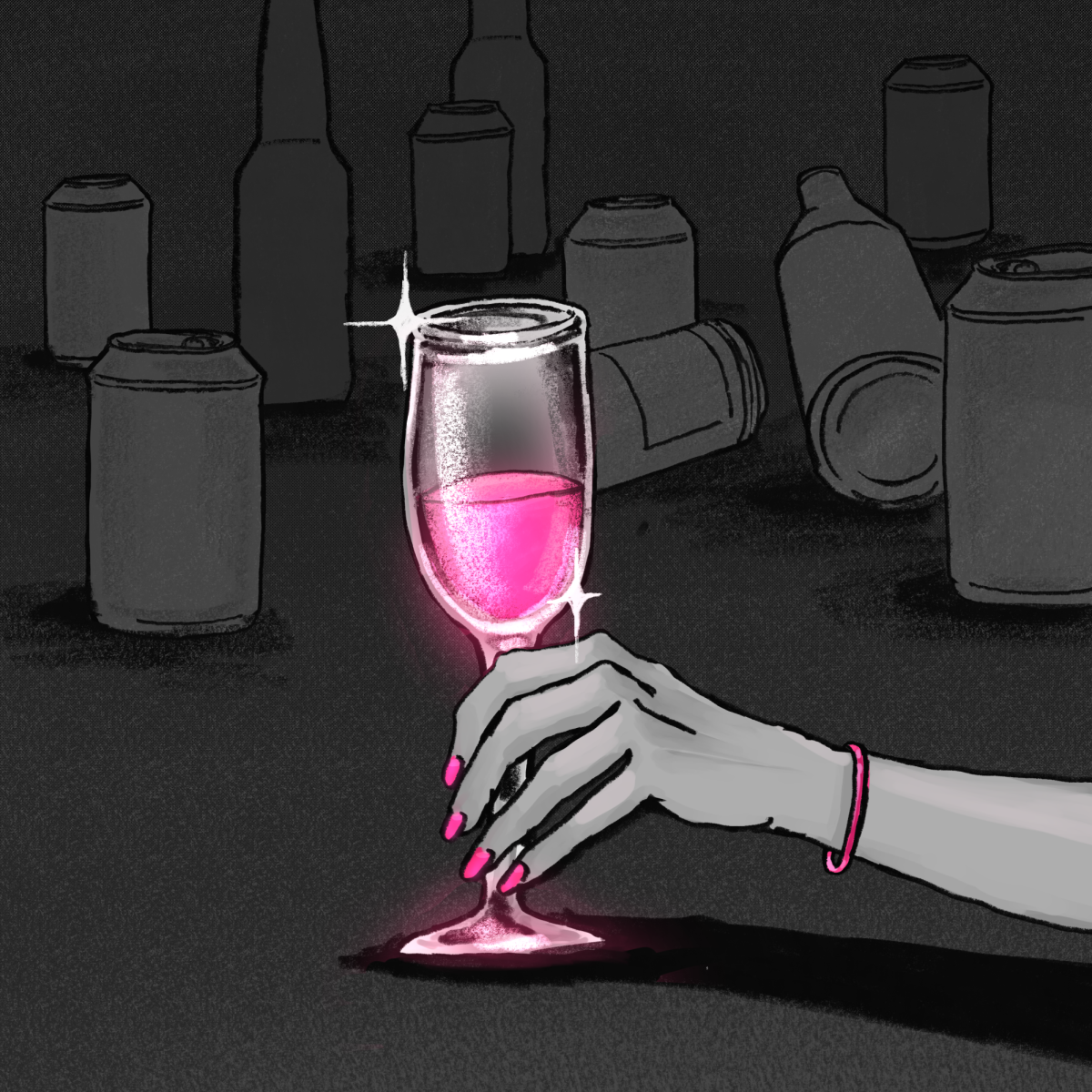When we first think of women in the history of alcohol, it is normal to associate them with the Prohibition era of 1920-33. This is an important historic event for the women who struggled with domestic violence at home and came together to find a solution. With this in mind, it’s crucial to recognize the women who contributed to the large alcohol industry the world has today, which is, to no one’s surprise, largely dominated by men.
Unfortunately, like most industries in the world, misogyny has made its way to alcohol, and now, society instantly deems drinks such as a cosmopolitan, rosé or lemon drop martini as “girly.” These drinks are stereotypically associated with women and thus seen as a lesser drink than beer or scotch, which are deemed “strong” and “manly.” Social norms and drinking culture have continuously led people to judge women for drinking certain beverages, referring to them as wine moms or party girls. As a result of these misogynistic stereotypes, the history of women in the alcohol industry is often completely overlooked.
To shed light on the women’s impact in the worldwide alcohol industry, let’s discuss some of the most notable female pioneers in alcohol and give credit where credit is due in drinking culture.
Let’s start with Ada Coleman, the first and only female bartender at the American Bar in The Savoy Hotel in London during the late 19th century. Since then, there has only been one other female head bartender at this bar. Coleman made drinks for some of the most well-known people at the time, including Mark Twain, the Prince of Wales, Prince Wilhelm of Sweden and Jim Brady. She is best known for creating a drink called the Hanky Panky — the only drink former bartender and Coleman’s mentee, Harry Craddock, attributed to her in his Savoy Cocktail Book. The Hanky Panky came about when famous actor Charles Hawtrey asked for “something with a bit of punch to it.” The drink includes gin, vermouth, Fernet liquor and orange juice and is now a staple at the Savoy Hotel, all thanks to Ada Coleman and her creativity.
Even Catherine the Great, the reigning empress of Russia from 1762 to 1796, had a monumental impact on the vodka industry in Russia. Catherine the Great allowed nobles to distill their own vodka on their estates. This decision increased the state revenue from vodka sales by 20% during her reign. She is known as the catalyst of Russia’s most notable drinks and economic industries.
I think it would be cruel not to mention Hildegard von Bingen, a 12th-century German nun credited with one of the earliest mentions of hops in a beer. She is seen as an unofficial patron saint of beer. This German nun claimed that the addition of the plant hops to beer induces melancholy and weighs down one’s insides. Her discovery opened the doors to more creativity in the beer industry and provided the foundation for the work of many brewers and hops growers today.
These are only a few of the women who have had tremendous impacts on the alcohol industry we know today. Women continue to shine in this industry, but the recognition they deserve is not apparent.
There are many more recent women-owned alcohol companies worth noting, such as Uncle Nearest Premium Whiskey, launched in 2017 by Fawn Weaver, which is the first major American spirit brand founded and led by a Black woman. Talea Beer Co. is New York City’s first exclusively female-owned brewery, founded by LeAnn Darland and Tara Hankinson. Lastly, Future Gin is a women- and queer-owned and -operated brand based in California.
With all of this new feminist alcohol knowledge, I suggested that instead of associating a drink with a gender and then talking down on said drink, let’s just enjoy our beverages and appreciate the creativity it takes to create them.
Grace Harris has a passion for social justice and advocacy. Her email is always open to more ideas — [email protected]




